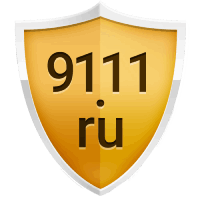The Enigmatic Life and Leadership of Vladimir Putin
Introduction
Vladimir Vladimirovich Putin, one of the most prominent figures in contemporary global politics, has captivated the world's attention for decades. Born on October 7, 1952, in Leningrad (now Saint Petersburg), Russia, Putin has led a remarkable life filled with intrigue, power, and controversy. This article delves into the multifaceted life of Vladimir Putin, tracing his journey from a humble background to becoming Russia's longest-serving leader since Joseph Stalin.
Early Life and KGB Career
Putin's early life was marked by modesty. Raised in a communal apartment, he lost his two older brothers to childhood illnesses, leaving him as the sole surviving sibling. His father served in the Soviet Navy, while his mother worked in a factory. Putin's academic achievements in school were notable, and he was even awarded a black belt in judo, which later became one of his trademark skills.
In 1975, Putin joined the KGB, the notorious Soviet intelligence agency. His intelligence career took him to East Germany, where he worked undercover as a spy. This experience honed his skills in espionage and provided him with insights into the complexities of global politics.
Rise to Power
Putin's rise to power began in the turbulent 1990s, following the collapse of the Soviet Union. He held various positions in the Russian government, including as Deputy Mayor of Saint Petersburg and later as the head of the Federal Security Service (FSB), the KGB's successor agency. In 1999, then-President Boris Yeltsin appointed Putin as Prime Minister, a move that paved the way for Putin's ascension to the presidency later that year.
Presidential tenure
Putin was first elected as Russia's President in 2000. His presidency marked a period of political stability after years of economic turmoil and political upheaval. During his tenure, Putin implemented various reforms, including tax reforms and a crackdown on the oligarchs who had wielded immense power in the 1990s. His tough stance on Chechen separatists garnered both support and criticism.
In 2008, due to constitutional term limits, Putin could not seek a third consecutive term as President. He became Prime Minister under Dmitry Medvedev's presidency but remained the de facto leader of Russia. In 2012, Putin was re-elected as President, and he subsequently won a fourth term in 2018, extending his rule until 2024.
Controversies and Criticisms
Putin's leadership has been marked by controversies and criticisms. His government has been accused of suppressing political opposition, restricting media freedom, and allegedly interfering in foreign elections. The annexation of Crimea from Ukraine in 2014 and Russia's involvement in the Syrian Civil War have strained relations with Western countries.
Personal Life and Image
Putin has been notoriously private about his personal life. He was married to Lyudmila Shkrebneva from 1983 to 2014, and the couple had two daughters, Maria and Yekaterina. Little is known about his personal interests and hobbies outside of his public persona.
Conclusion
Vladimir Putin's life and leadership have left an indelible mark on Russia and the world. Whether seen as a strongman leader who restored Russia's global influence or as an authoritarian figure who has stifled dissent, there is no denying his enduring impact. As of my last knowledge update in September 2021, Putin's future in Russian politics remained uncertain, but his legacy as a dominant figure in contemporary history is unquestionable.
Статья: Большой Брат в квадрате: РКН подарит вам прозрачность, а вы — данные,
Заработано: 1500 ₽ в конкурсе
Статья: Я плачу алименты, а ты плати мне за проживание себя и ребенка в моей квартире,
Заработано: 1300 ₽ в конкурсе
Статья: Секс - не грех ради демографии? В Великий пост россиянам разрешили заниматься интимом,
Заработано: 1200 ₽ в конкурсе
Статья: Никакой легкой жизни. В РПЦ уверены, что россиянам нужно «мучиться и терпеть»,
Заработано: 1100 ₽ в конкурсе
Статья: Сверхурочные по-новому, пенсия и... черный юмор про корову и надои,
Заработано: 1000 ₽ в конкурсе

